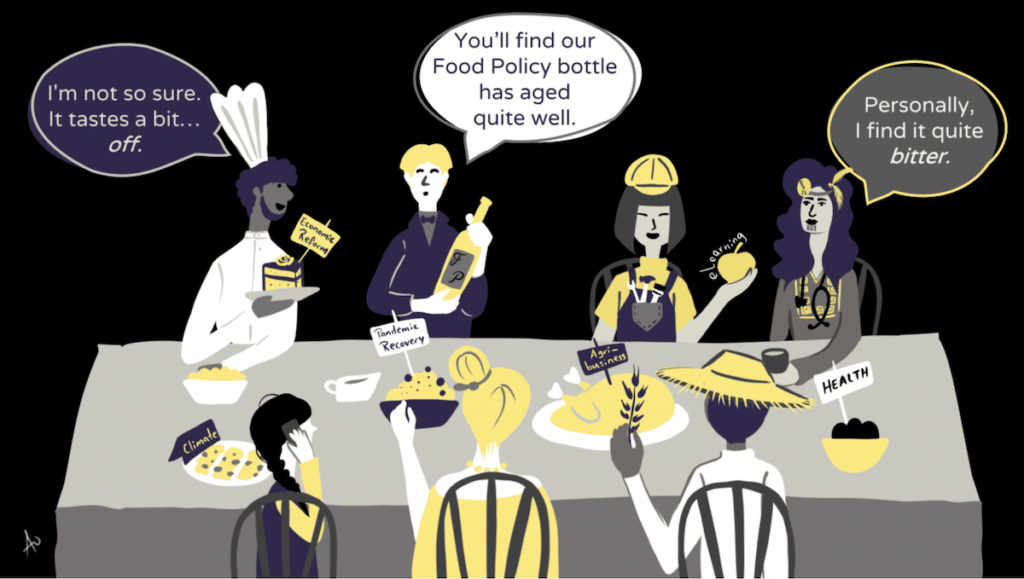While few things are simpler than gathering around a table to share a meal, the process of getting food onto your plate is surprisingly complex. People, animals, geographies, institutions, traditions and policies: the interaction between all of these actors and processes results in an intricate ecosystem of food. In my second article for Accidental European, I explore how better understanding this ecosystem can ensure a collaborative approach that will serve up a more sustainable and inclusive ecological future, for food and beyond.
The global pandemic has jolted our food systems and lifted the veil to reveal the extent of its inefficiency, fragility, and unsustainability. Food is the epicentre of this global transition process. It represents the intricate web that connects everything and everyone – from policymakers to businesses, from producers to consumers and, therefore, is precisely the tool for the regeneration we so desperately need.

